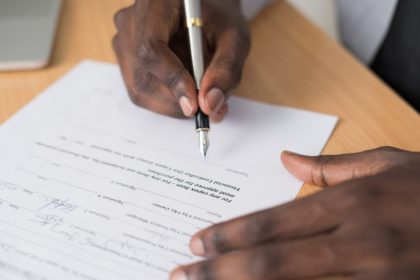
By Marius van Rensburg – Head of Conveyancing and Partner at Schindlers Attorneys
INTRODUCTION
Purchasing a house is usually quite stressful owing to the enormity of the implications involved, this can be further compounded by a party to the transaction passing away or going insolvent. In this article we explore the implications of the death/insolvency of one of the parties to an immovable property transaction prior to registration.
CONSEQUENCES OF THE DEATH OF THE SELLER
Agreements concluded prior to the death of either party to a sale agreement, remain valid and enforceable. Should the seller pass away before registration, the Power of Attorney signed by the seller in favour of the transferring attorneys becomes invalid. This applies even if the matter has been lodged in the deeds office. If the seller dies, the matter must be halted and the estate of the deceased must be reported and an executor appointed by the Master of the High Court. The executor appointed must then sign a new Power of Attorney to proceed with the transaction.
Before transfer from the deceased estate can take place, the Power of Attorney must also be endorsed by the Master of the High Court in terms of section 42(2) of the Administration of Estates Act 66 of 1965. In the ordinary course in the event of a sale of immovable property from a deceased estate, all major heirs must consent to the sale of the property, In the case where a seller sells a property and subsequently dies before registration, consent of the major heirs is no longer a requirement.
THE CONSEQUENCES OF THE DEATH OF THE PURCHASER
As with the death of a seller before registration, the agreement remains valid and enforceable. In such circumstances, the executor of the deceased’s estate (duly appointed) would have to act on behalf of the estate. This includes the signature of the necessary documents to give effect to the transfer. In the case of a purchaser becoming deceased, there may be further complications such as when the deceased purchaser had obtained a mortgage bond, the bank will withdraw the bond owing to the practicalities of the death of the purchaser (who will be unable to service the bond repayments). If the bond is withdrawn after approval, the agreement does not lapse and it remains to the parties to find a practical solution. In the event that the bond is not granted at the time of death, as the bond approval is a suspensive condition, the agreement will lapse.
THE CONSEQUENCES OF THE INSOLVENCY OF THE SELLER
If the estate of the seller is sequestrated prior to registration, the property vests in the trustee of the seller’s insolvent estate. In so far as the purchaser may have fully or partially performed in terms of the agreement of sale concluded prior to the insolvency, by payment of the whole or portion of the purchase price, the purchaser is in a position of a creditor with a concurrent claim against the insolvent estate.
The trustee has an election to proceed with the agreement or not. In the event of the trustee proceeding, the agreement remains in full force and both parties must perform in full per the agreement. The consequences of the trustee choosing not to proceed with the transaction/repudiating are that the purchaser is barred from obtaining an order of specific performance but may pursue other contractual remedies available in law such as damages.
In terms of Section 23 of the Insolvency Act 24 of 1936 if an insolvent wishes to alienate (sell, donate, exchange etc.) a property, this will only be permitted by the registrar of deeds if the consent by the trustee of the insolvent estate is lodged together with the transfer or registration of the mortgage bond.
THE CONSEQUENCES OF THE INSOLVENCY OF THE PURCHASER
If an insolvent, before the sequestration entered into a contract for the purchase of immovable property (which was not registered in his/her name), the trustee of the insolvent estate may enforce or abandon the contact. This means that if a person has signed an agreement to purchase immovable property and is subsequently sequestrated, the trustee can decide to accept or reject the transaction. If the trustee decides to accept the contract, the property falls in the estate of the insolvent, if not the property returns to the seller. The seller may call upon the trustee by notice in writing to elect whether the trustee will enforce or abandon the contract.
CONCLUSION:
Considering the above, there are obstacles that must be addressed when faced with death or insolvency. These issues must be addressed expediently and professionally, readers are encouraged to seek advice from one of our professionals.

